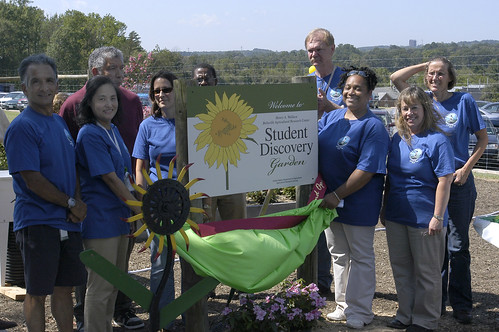
This post is part of the Science Tuesday feature series on the USDA blog. Check back each week as we showcase stories and news from USDA's rich science and research portfolio.
When George Washington Carver laid out key elements of his blueprint for education, he could never have guessed that the cutting-edge work of 21st century agricultural science would find a 7,000-acre rural home—right in the middle of the maze of highways and high-rises, homes and businesses that make up the Washington metropolitan region.
One hundred years after the federal government first began buying huge tracts of farmland, meadows and woods outside the District of Columbia, a group of scientists, researchers, students and other volunteers who work at the sprawling Beltsville Agricultural Research Center (BARC) are taking a page out of the renowned scientist’s book—literally, a 1910 textbook.
The whole idea, as laid out in Carver’s “Nature Study and Gardening For Rural Schools,” is making sure school kids get their hands dirty.
In that spirit, volunteers from the Beltsville Area Diversity Task Force and its technology, education and outreach group started planning about a year ago for an unassuming project for students that would echo Carver’s “learning by doing” educational philosophy. The idea of establishing an old-fashioned victory garden that would continue outreach efforts to students in local schools seemed to be a perfect match.
The Student Discovery Garden, as it has come to be known, has been up and growing since last spring, fueled by the energy of volunteers and students.
The garden, all organic with raised beds, includes seven sections, each focusing on one of the research programs at BARC, including breeding native crops to keeping non-native species from pushing their way in. Another learning experience for an all-organic garden was an infestation of Colorado potato bugs that were laboriously smashed one at a time. Another addition to the urban students’ knowledge base: They found out that stink bugs really live up to their name!
